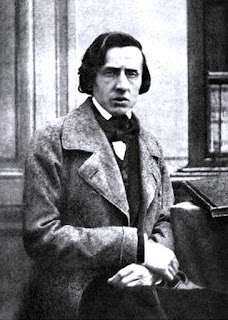Composer: Frédéric Chopin
CD1:
- Nocturne in B flat minor, Op. 9 No. 1
- Nocturne in E flat major, Op. 9 No. 2
- Nocturne in B major, Op. 9 No. 3
- Nocturne in F major, Op. 15 No. 1
- Nocturne in F sharp major, Op. 15 No. 2
- Nocturne in G minor, Op. 15 No. 3
- Nocturne in C sharp minor, Op. 27 No. 1
- Nocturne in D flat major, Op. 27 No. 2
- Nocturne in B major, Op. 32 No. 1
- Nocturne in A flat major, Op. 32 No. 2
- Nocturne in G minor, Op. 37 No. 1
- Nocturne in G major, Op. 37 No. 2
CD2:
- Nocturne in C minor, Op. 48 No. 1
- Nocturne in F sharp minor, Op. 48 No. 2
- Nocturne in F minor, Op. 55 No. 1
- Nocturne in E flat major, Op. 55 No. 2
- Nocturne in B major, Op. 62 No. 1
- Nocturne in E major, Op. 62 No. 2
- Lento con gran espressione in C sharp minor 'Nocturne', KKIVa/16
- Nocturne in E minor, Op. 72 No. 1
- Nocturne in C minor, KKIVb/8
- Larghetto in C sharp minor 'Nocturne oublié', KKAnh.Ia/6
- Nocturne in E flat major, Op. 9 No. 2b
Stephen Hough, piano
Date: 2021
Label: Hyperion
----------------------------------------------------------------------------
In answer to the reasonable question, ‘Who, at this late date, could have something fresh and original to say in the Chopin Nocturnes?’ this new Hyperion release persuasively answers, Stephen Hough does. In addition to the 18 pieces published during Chopin’s lifetime, included are two posthumously published works, the E minor Nocturne, Op 72 No 1, and the Lento con gran espressione in C sharp minor, and two misattributed works, the Nocturne in C minor, KK IVa/16, now thought to be the work of Charlotte de Rothschild, and the so-called Nocturne oubliée, whose composer is unknown. There is also a second reading of the E flat Nocturne of Op 9, which includes variants Chopin notated in the scores of his pupils. All are subject to Hough’s probative intellect and cultivated musicality.
Nocturnes by their very nature are fundamentally lyrical but Hough appropriately insists that, in Chopin, this intrinsic lyricism rises to the operatic, informed by the stile bel canto and replete with drama. Mindful of the rapid sound decay of Chopin’s beloved Pleyel pianos, Hough believes that in those instances where the composer added metronome markings, they should be scrupulously observed. Consistent with what we know of early 19th-century attitudes towards the published text, as well as Chopin’s particular emphasis on spontaneous improvisation, Hough frequently interpolates ‘authentic’ variants: in other words, variants that Chopin himself noted in various editions and in the scores of his pupils. The results overall are occasionally astonishing, often thought-provoking and never less than interesting.
Perhaps the greatest surprise is the G minor Nocturne, Op 15 No 3, for which, in addition to its Lento marking, Chopin specifies a metronome setting of 60 to the dotted minim. This is a considerably quicker tempo than taken by any other pianist I know, and in the chorale second half of the piece, it seems rushed indeed. Yet, in his booklet notes, the distinguished Chopin scholar Jeffrey Kallberg points out that the opening of this Nocturne is likely an allusion to the mazurka. Another departure from the customary is the rather lively pace of the D flat Nocturne, Op 27 No 2. Also unusual are both the tempo and articulation of the G major Nocturne, Op 37 No 2, where the parallel thirds seem almost jocular, in contrast to their familiar luxuriant unfolding. Hough’s interpolations are unfailingly stylish and tasteful. His execution of dynamic and agogic indications is always faithful to the score, everywhere apt and effective. Meanwhile, during slightly less than two hours of listening, there are countless moments of heart-stopping beauty.
Both its deeply considered, distinctive rethinking of canonic repertory and the sheer poetry of its execution make this a release that neither students of Chopin nor lovers of fine piano-playing will want to miss.
-- Patrick Rucker, Gramophone
MusicWeb International RECORDING OF THE MONTH
----------------------------------------------------------------------------
Frédéric Chopin (22 February or 1 March 1810 – 17 October 1849) was a Polish composer and virtuoso pianist of the Romantic era who wrote primarily for the solo piano. He gained and has maintained renown worldwide as one of the leading musicians of his era. Chopin's music, his status as one of music's earliest superstars, his association with political insurrection, his love life and his early death have made him a leading symbol of the Romantic era in the public consciousness. His works remain popular, and he has been the subject of numerous films and biographies of varying degrees of historical accuracy.
http://en.wikipedia.org/wiki/Frédéric_Chopin
http://en.wikipedia.org/wiki/Frédéric_Chopin
***
Stephen Hough (born 22 November 1961) is a British-born classical pianist, composer and writer. He has appeared as a soloist with major orchestras, as recitalist on the major stages, and as chamber musician with top musicians. He is also known for his various dazzling recordings of encore pieces and for championing lesser-known composers. His recordings (more than 50 of them) received multiple awards. As a composer, he has written over 30 published pieces, and often includes his own works in his recitals. As a writer, Hough has written about his homosexuality and its relationship with both his music-making and his religion.
http://en.wikipedia.org/wiki/Stephen_Hough
http://en.wikipedia.org/wiki/Stephen_Hough
----------------------------------------------------------------------------
FLAC, tracks
Links in comment
Enjoy!



Choose one link, copy and paste it to your browser's address bar, wait a few seconds (you may need to click 'Continue' first), then click 'Skip Ad' (or 'Get link').
ReplyDeleteIf you are asked to download or install anything, IGNORE, only download from file hosting site (mega.nz).
If MEGA shows 'Bandwidth Limit Exceeded' message, try to create a free account.
http://usheethe.com/8jwa
or
https://uii.io/OmzOStOZ
or
https://exe.io/7TJr